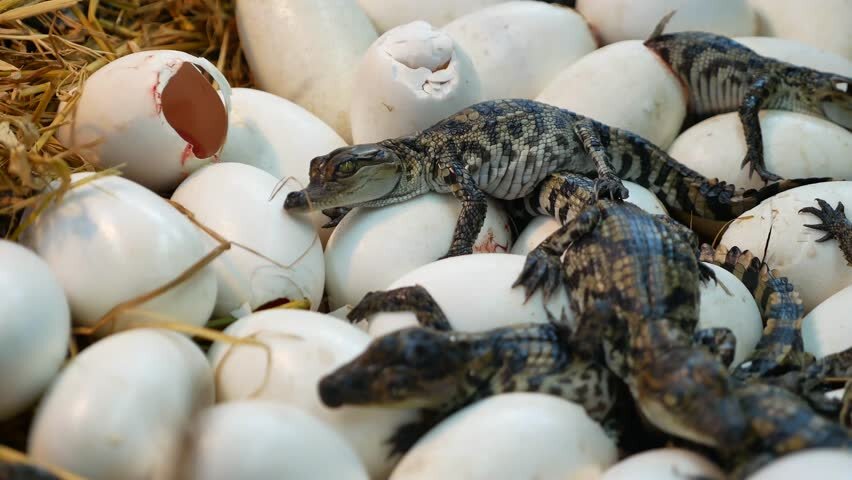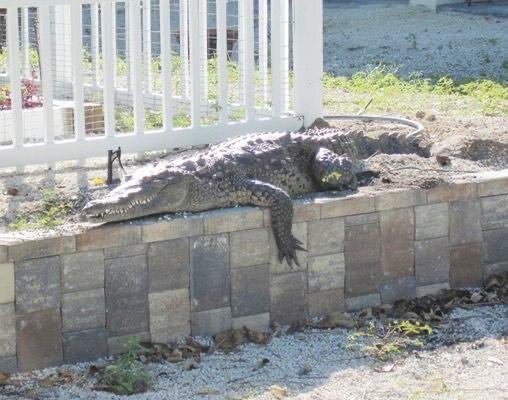
Because of habitat loss, hide hunting, pollution and commercial farming, the American crocodile is endangered in parts of its range. Hunted to near extinction in the US, it is now federally protected, where their range is limited to extreme South Florida. Over the past few years, this shy species has been doing well to reestablish its native territory in the Florida Keys where it once flourished.
American crocodile nesting in a resident’s planter box in the Florida Keys.
The Keys have a high density population of residents. Key West alone has a population density comparable to that of Detroit, Michigan (excluding Keys tourism). Because of the high number of people residing in these areas interlacing with recent crocodile recovery, human/crocodile conflicts (HCC) have been on the rise. Nesting females also have had their share of complications.
This American crocodile was later found shot and killed after nesting in this privately owned Florida Keys yard. Photo by Bill Billings
The majority of shoreline in the Florida Keys is privately owned which often creates difficulties for crocodiles when they are looking to nest. In addition, higher than normal ‘king tides’ in the Keys, associated with climate change, are also making dry nesting areas harder to find for these animals. Flower gardens, planter boxes, backyards, private beaches, construction zones, etc..all commonly used nesting areas which often creates problems for residents and their newly unwanted tenants.
To assist with this dilemma, The Crocodile Foundation focuses one of its studies on implementing a number of raised crocodile nesting boxes that will be strategically placed outside targeted, high-density residential conflict areas in the Florida Keys & monitored for a three-year pilot study. Ultimately, this could potentially help minimize HCC numbers by deterring crocodiles from nesting on resident’s private properties while allowing the animals a safe and suitable area to nest.
Crocodile nesting box
If you see an American crocodile that concerns you, please call FWC's statewide nuisance alligator hotline at 866-FWC-GATOR



